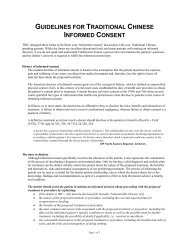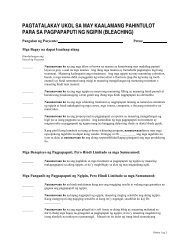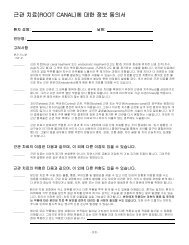dentistpatient
guidelines for informed consent - The Dentists Insurance Company
guidelines for informed consent - The Dentists Insurance Company
Create successful ePaper yourself
Turn your PDF publications into a flip-book with our unique Google optimized e-Paper software.
Exceptions to disclosureThe dentist has no duty to disclose where:• the patient asks not to be advised.• the procedure is simple and any danger is remote and commonly understood to be remote. Forexample, the risk of death by anaphylactic reaction following an injection is a remote risk oftreatment.• the risk is minor and seldom results in serious side effects. For example, gingival discomfortwhile biting down on bitewing x-ray films is a minor risk of treatment.• disclosure would so seriously upset the patient that he or she would be unable to rationallyweigh the risks of refusing the procedure (known as the therapeutic exception).In addition to these exceptions, informed consent is not required in very rare instances where the needto respond immediately to an unanticipated condition or a life-threatening emergency makes itimpossible to obtain the patient’s informed consent. However, since dental emergencies, unlikemedical emergencies, are rarely life-threatening, the dentist should make every reasonable effort toobtain the patient’s informed consent or refusal.The informed consent discussionThe dentist should obtain the patient’s informed consent through a face-to-face discussion thatallows the patient sufficient time to make an informed decision. The discussion should beappropriate to the patient’s level of understanding.Ideally, the informed consent discussion should take place at least several days before treatment, suchas when the dentist presents the treatment plan (this is particularly important for extensive, complexor risky treatment). Since the dentist is legally obligated to disclose information in a manner thepatient can understand, the discussion should involve lay terminology, not scientific jargon. For thesame reason, consider providing translated informed consent materials and, if necessary, aninterpreter for non-English-speaking patients who may require it. The dentist must decide what to tellthe patient about a procedure based on whether the patient has undergone the same or similarprocedure previously. The use of educational materials is recommended.Because the dentist bears the ultimate legal and ethical responsibility for informing the patient, theinformed consent discussion cannot be delegated to staff. Although staff can assist by presenting thepatient with printed or audiovisual materials, the dentist should personally solicit and address thepatient’s questions and concerns.Informed consent for minor patientsFor minor patients, obtain the informed consent of the parent, custodial parent or legal guardian.Where parents live separately, the patient’s personal information form should indicate which parent isthe custodial parent. Where separated parents share custody, the patient’s record should containletters from each providing consent and authorization to treat. Asking for a parent’s or custodialparent’s blanket consent for emergency treatment in advance of an emergency is one useful way toavoid confusion and delays should the patient require emergency care when a parent or legal guardianis not present.Page 2 of 3



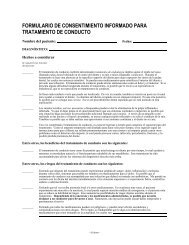
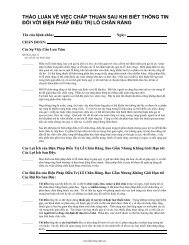
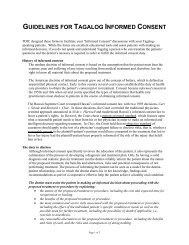
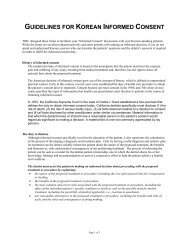

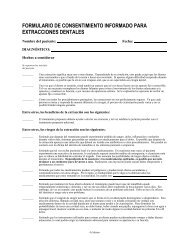
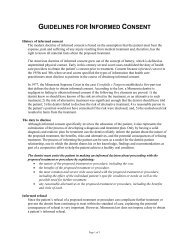
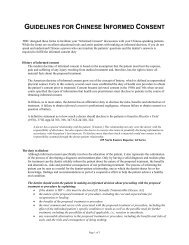

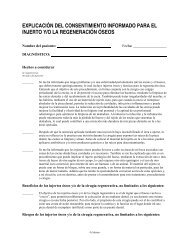
![치아 미백(표백)[TOOTH WHITENING (BLEACHING)]에 대한 정보 동의서](https://img.yumpu.com/52851055/1/190x245/-tooth-whitening-bleaching-.jpg?quality=85)
